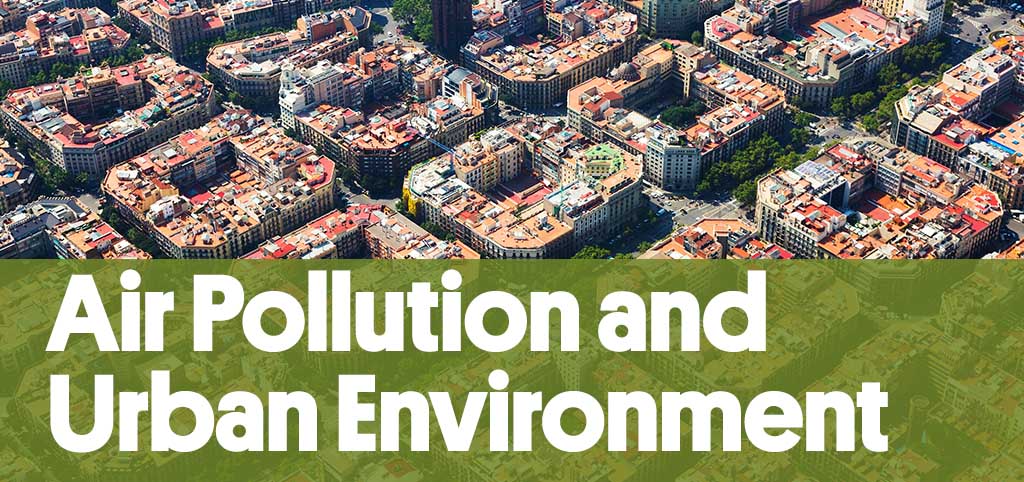TAPAS-Transportation, air pollution and physical activities. An integrated health risk assessment progamme of climate change and urban policies
Transportation, air pollution and physical activities. An integrated health risk assessment progamme of climate change and urban policies

- Duration
- 2009 ? 2013
- Coordinator
- Mark Nieuwenhuijsen, Audrey de Nazelle
- Funded by
- Coca-Cola Foundation
AGAUR- Generalitat de Catalunya - Website
- http://www.tapas-program.org/
The purpose of the TAPAS research programme is to help decision makers design urban policies that address climate change and also promote other health-related outcomes. In particular, we are interested in assessing conditions and policies that hinder or encourage active travel, and resulting health impacts. We will develop a tool box for policy makers to calculate and demonstrate the potential net health benefits of their policies, which they can use to encourage change. A quantitative assessment of impacts of active travel policies will be developed for six case study cities: Barcelona, Basel, Copenhagen, Paris, Prague, and Warsaw. We will collect existing data and take additional measurements to assess determinants of active travel and potential co-benefits and co-risks of modal shifts from motorized to non-motorized modes of travel.
The work is expected to lead to healthy and active lifestyles by providing an evidence base for designing optimal policies that will encourage a change to active transportation leading to an increase in physical activity and provide other health and environmental benefits.
The transportation sector represents a significant contributor to greenhouse gases emitted in Europe. The introduction of more efficient cars and reducing vehicular travel are essential components of climate change mitigation policies across the continent. Shifting the population towards active modes of transportation (e.g. cycling, walking) represents a particularly promising strategy with a high potential of public health co-benefits. Such change may result in a sustained increase in physical activity in the population – a major requirement to abate the obesity epidemic.
Other potential benefits include improvements in environmental quality indicators such as ambient air pollution and noise, as well as in the social environment (social capital) and quality of urban life, and related health impacts. However, depending on local conditions and policies, these strategies may also result in adverse health effects as inhalation of air pollutants may increase among those physically active along traffic arteries and traffic accident rates may increase. Currently there is no holistic framework and related tools for policy makers to evaluate these inputs and expected health impacts.
A preliminary and evolving conceptual model was developed and debated during a workshop held in Barcelona November 9th-11th 2009. Forty five international experts from 29 institutes/research groups and 12 different countries attended the meeting, reviewing the state of the art knowledge and discussing strengths and limitations of evidence of different linkages between urban and transportation policies, exposures and public health, to determine the relevance and appropriateness of exposures, outcomes, and exposure-response functions to be included in a quantitative assessment of health impacts of active travel policies.
We are currently building a quantitative model of impacts of active travel policy scenarios for the six TAPAS case study cities. To populate variables and define relationships within the model, we use existing data from the literature and local available data sources. Additionally we are designing two experimental studies with primary data collection addressing specific data gaps: exposure and intermediary health outcomes in travel environments in Barcelona, and determinant of active travel behavior in Barcelona.
Expected net health impacts will be compared across selected cities in discussed in the context of inherent differences in urban structure and existing transport related policies. Scenarios will be analyzed to determine optimal conditions for positive net impacts and highlight conditions which would result in negative impacts to advise policy recommendations.
Our Team
Principal Investigator (PI)
-
Marius Joannes Nieuwenhuijsen
Our Team
-
Josep Mª Antó Boqué
-
 Marta Cirach Pradas GIS Technician
Marta Cirach Pradas GIS Technician -
Jan-Paul Zock Associate Research Professor:
-
Ione Avila Research technician
-
Judith Garcia Aymerich




